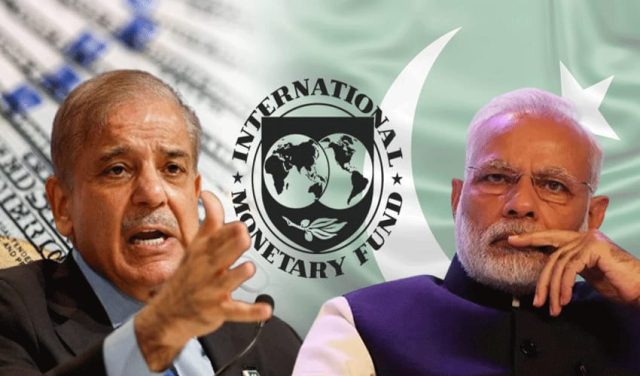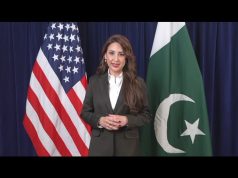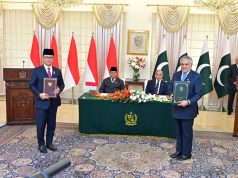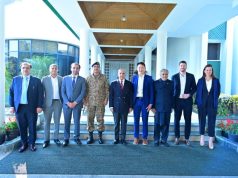ISLAMABAD, Friday, May 09, 2025 (WNP): Prime Minister Muhammad Shehbaz Sharif on Friday welcomed the International Monetary Fund’s (IMF) approval of a critical $1 billion tranche for Pakistan, describing it as a testament to the country’s economic resilience and dismissing what he termed India’s “failed underhanded tactics” to sabotage the programme.
In a statement issued by the Prime Minister’s Office, Shehbaz expressed satisfaction over the disbursement, lauding Deputy Prime Minister and Foreign Minister Mohammad Ishaq Dar, Finance Minister Muhammad Aurangzeb, Finance Secretary Imdadullah Bosal, and the broader economic team for successfully steering negotiations with the IMF.
“By the grace of Allah, Pakistan’s economic situation is improving, and the country is steadily moving towards progress,” the prime minister said.
He accused India of attempting to derail Pakistan’s economic revival through “malicious propaganda and unilateral aggression” aimed at distracting global attention from Pakistan’s development efforts. “India’s desperate moves to sabotage the IMF program have failed,” he asserted, adding that international financial institutions had “firmly rejected” India’s narrative.
The IMF approval, the prime minister said, would help stabilize the economy and set Pakistan on a path to long-term, sustainable growth. He reaffirmed the government’s commitment to structural reforms, particularly in taxation, the energy sector, and private sector development.
Shehbaz Sharif cited positive macroeconomic indicators over the past 14 months as evidence of policy effectiveness, including a significant 31% rise in workers’ remittances. “Remittances reached a record \$31.2 billion from July 2024 to April 2025,” he noted, crediting overseas Pakistanis for their continued confidence in the government’s economic direction.
Addressing a high-level meeting to review preparations for the upcoming federal budget 2025–26, the prime minister emphasized the government’s priority to provide relief to the poor and middle class. “All-out efforts will be made to ease the financial burden on low- and middle-income groups,” he said.
He directed that the budget focus on sustainable, export-led growth and prioritize job creation, industrial development, agriculture, IT, small and medium enterprises (SMEs), and the housing sector.
Public-private partnerships, youth vocational training, and digitization were highlighted as key levers of future growth. “Reforms in the power sector are yielding results,” Shehbaz said, pointing to recent reductions in industrial electricity tariffs as a step toward boosting production and economic activity.
He also announced plans to continue rightsizing the federal government to streamline governance and reduce public expenditure.
The meeting was briefed that stakeholder consultations had been ongoing for the past three months, with active input from private sector representatives, experts, and industrial bodies. It was further informed that the five-year Trade Policy Framework (2025–30), E-Commerce 2.0 Strategy, and a comprehensive tariff rationalization plan were in the final stages of development.
Business leaders participating in the meeting expressed confidence in the government’s economic agenda and shared policy suggestions, many of which the prime minister instructed be incorporated into the budget where feasible.
Federal ministers Ahsan Iqbal, Ahad Khan Cheema, Muhammad Aurangzeb, Jam Kamal Khan, Shaza Fatima, Sardar Awais Ahmad Leghari, and Ali Pervaiz Malik, along with Special Assistant to the Prime Minister Haroon Akhtar and other senior officials, attended the meeting.




